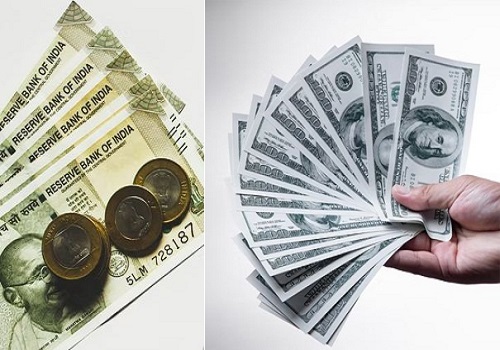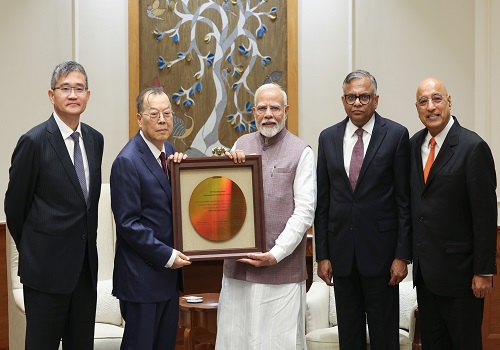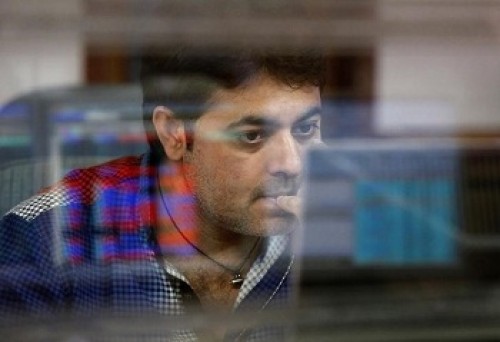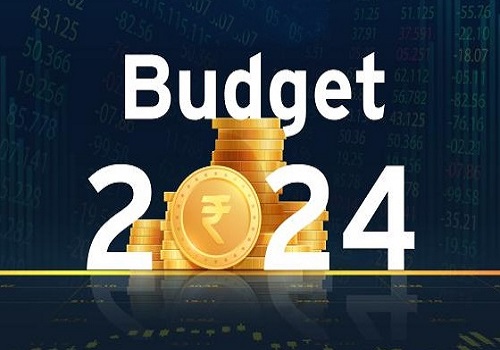2024-07-10 05:28:45 pm | Source: BDO India

1. Personal taxation
1.1 The expectations of public at large are: (a) raising the section 80C limit from INR 1.5 lakhs to INR 3 lakhs, (b) increasing the section 80D limit to INR 50,000 (excluding deductions for parents) due to rising health insurance costs, and (c) doubling the standard deduction on salary income from INR 50,000 to better reflect the cost of living.
1.2 Individuals and HUFs having a business income shall have the option to select between the new and old tax regimes annually.
1.3 House Rent Allowance to be extended to the new tax regime. Additionally, deduction for interest payable during the construction period may be allowed in the year of payment itself. The Cap of HRA exemption to be increased by reducing the reduction to 5% of basic salary from the current 10%.
1.4 House property [Section 23(1)(c)] – Clarification on whether benefit of vacancy allowance be availed in case of a house property which was let during one of the previous years in the past but remained vacant for the whole of the relevant previous year, although it was in a lettable position.
2. Corporate tax
2.1 Allow deduction of CSR expenditure completely under the head ‘PGBP’.
2.2 Extension of sunset clause for Section 115BAB – New Manufacturing companies set-up till 31 March 2026 to be made eligible for reduced tax rate of 15%.
Quote on Pre-budget expectations on Indirect Tax by Gunjan Prabhakaran, Partner & Leader, Indirect Tax, BDO India

Below the Quote on Pre-budget expectations on Indirect Tax by Gunjan Prabhakaran, Partner & Leader, Indirect Tax, BDO India
A. Expectations from Customs and SEZ perspective:
- SEZ perspective: Clarity on the future of SEZ law (e.g. continuation of present SEZ Act or introduction of proposed DESH bill) specially in the context of the first 100 days plan of MOC with respect to changes in SEZ law (NFE, payment of input taxes rather than Customs duty on DTA supplies by SEZ, etc.) and the steps to generate economies of scale.
- Customs Law perspective: Continued rationalisation of customs duties to promote domestic manufacturing. Many of the customs exemptions are facing a sunset on 30th September and the requirement to extend the validity of exemptions to meet the requirements of the respective sectors needs to be assessed.
On the import of products, where the Indian industry is vulnerable to imports, there may be imposition of safeguard duties. Introduction of defined process and timelines for finalisation of provisional bill of entries and adding grounds for amendment of bill of entries, to bring ease of doing business. Tweaking the MOOWR scheme to specifically allow depreciation for removal of used capital goods (like EOU etc).
B. Expectations from GST law perspective:
C. Other expectations:
- Various amendments in the CGST Act and IGST Act are expected, to give effect to the recommendations made by the GST Council in its 53rd meeting. More prominent among such amendments are (1) introduction of section 11A, giving the Government power to regularise any non/short levy on account of industry practice (2) Amendment in section 16(4) of the CGST Act to extend the time limits for claiming ITC for the period FY2017-18 to FY2020-21 (3) Introduction of section 128A to bring an amnesty scheme for waiver of interest and penalty on payment of tax as per notice, in the cases not involving fraud, suppression etc (4) Amendment to introduce a common time limit to issue notices in all cases, whether involving fraud, suppression etc or not (5) Amendment in schedule III to exclude sharing of premium between co-insurers from definition of supply etc
- Relaxation of section 17(5) of the CGST Act by reducing the list of blocked credits by excluding various expenses incurred in the course of business from ambit of section 17(5).
- The IT sector has two specific concerns, which need to be addressed:
1. The tax authorities have issued demands on several entities demanding GST and interest for non-receipt of foreign exchange within one year period. The GST law does not provide for such consequences except for the wordings in the Letter of Undertaking (LUT) executed by the exporters, who claim refunds. The Government should consider the substance of the transaction which is ‘export of services’ and provide specific guidance to condone the delays in receipt of consideration for export of services.
2. The current formula to claim refund of accumulated credit by exporters restricts the refund of input tax credit availed on Capital goods. This restriction is causing the blockage of working capital and it would help the exporters, if the Government revisits such exclusion and allows refund of ITC on capital goods, even if allowed as staggered over a period of time - The healthcare sector expects that interstate movement of equipments between branches for providing health care services should be exempted from GST, as the recipient is unable to claim ITC and the equipments have already suffered tax once without claim of ITC.
- The new Central Excise Bill 2024, which was released for public comments, is likely to replace the existing Central Excise Act 1944.
- Introduction of incentive schemes: The extension of benefits under schemes like the production-linked incentives (PLI) for the EV sector and the continuation of subsidies under the FAME scheme are anticipated to support industry growth and environmental goals to be achieved by 2030. Further, PLI 3.0 should also help government in promoting make in India and reduce its dependency on imports for items like toys, semiconductor, chemicals, pharma APIs, telecom and networking equipments etc.
Pre-Budget expectation on Customs duty on leather and textiles - Kartik Solanki, Partner, Indirect Tax, BDO India -
"Correction of the inverted duty structure is an ongoing process on part of the Government. It is expected that the Government would further try and correct instances of inverted duty structure in the current budget. Some of the products, on which the customs duty exemption (full or part) expired on 31 March 2024 and was extended to 30 September 2024 are – solar tempered glass for use in manufacture of solar cells/panels/modules, Gold Ores and Concentrate for use in the manufacture of Gold, Lithium Ion Cell, Parts of Gliders or simulators of Aircrafts (excluding rubber tyres and tubes of gliders) etc.
Action expected in case of these customs duty exemptions
For all of these items, where the customs duty exemption was extended to 30 September 2024, the Government would assess and decide whether to extend these exemptions further. For any of the products on which the exemption was extended till 30 September, 2024, if the exemption is not specifically extended by issuance of a notification, the customs duty exemption would come to an end on 30 September, 2024 and the product would attract duty from 1 October 2024."
Action expected in case of these customs duty exemptions
For all of these items, where the customs duty exemption was extended to 30 September 2024, the Government would assess and decide whether to extend these exemptions further. For any of the products on which the exemption was extended till 30 September, 2024, if the exemption is not specifically extended by issuance of a notification, the customs duty exemption would come to an end on 30 September, 2024 and the product would attract duty from 1 October 2024."
Pre-budget expectations on Sustainability & Eniverroment by Parveen Arora, Partner, BTG Advaya:
- To achieve net zero by 2070, 500 GW from renewable by 2030 and other such targets, India needs a lot of investments in the renewable energy sector along with dynamic and investor friendly policies.
- To encourage the industry and attract investments, the government may consider providing tax exemptions on dividends, capital gains, interest etc. on the investments made in the energy sector, particularly in sustainability and ESG. Strict reporting regarding efforts made towards decarbonisation and ESG rating system should be enforced through stock exchanges, finance companies, reporting ministry etc.
- Further, the Government should also push the states to simplify the policies for the establishment of renewable energy projects, reduce the number of approvals and avoid loading/imposing unnecessary charges especially after the commissioning of the projects.
Pre-budget expectations on Sustainability & Eniverroment by Rakesh Jha, Partner, Energy Sector Solutions, Sustainability and ESG, BDO India:
- India aims to install 500 GW of renewable energy projects by 2030. Currently, we are at approximately 194 GW, so achieving this ambitious target will require strong policy support and a proactive government push. Continuation of effective policies, such as the waiver of Inter State Transmission System (ISTS) charges and zero customs duty on ingots and other materials for solar module production, is crucial.
- With more intermittent renewable energy in the grid, the budget should support storage solutions to address green power unavailability during peak times. Implementing a storage obligation and reducing duties on batteries, along with other fiscal incentives, will help lower storage costs and enhance grid resilience.
- In the area of green hydrogen, the Strategic Interventions for Green Hydrogen Transition (SIGHT) program is progressing well, with projects being awarded to successful bidders for electrolyser manufacturing and green hydrogen production facilities. However, as the sector is still evolving and current costs are a major deterrent, the budget can promote offtakes by providing incentives or viability gap funding. Additionally, the budget should focus on infrastructure development for the entire green hydrogen value chain, including pipeline networks to facilitate offtakes.
Pre-budget expectations on Taxation Raghunathan Parthasarathy, Partner, Corporate Tax, Tax & Regulatory Services, BDO India -
Taxpayers and corporate entities are eagerly anticipating the unveiling of the 2024 Union Budget, a pivotal event that sets the tone for economic policies and taxation frameworks for the coming year. The wish-list aimed at fostering a more equitable and efficient tax regime in India is summarized below.1. Personal taxation
1.1 The expectations of public at large are: (a) raising the section 80C limit from INR 1.5 lakhs to INR 3 lakhs, (b) increasing the section 80D limit to INR 50,000 (excluding deductions for parents) due to rising health insurance costs, and (c) doubling the standard deduction on salary income from INR 50,000 to better reflect the cost of living.
1.2 Individuals and HUFs having a business income shall have the option to select between the new and old tax regimes annually.
1.3 House Rent Allowance to be extended to the new tax regime. Additionally, deduction for interest payable during the construction period may be allowed in the year of payment itself. The Cap of HRA exemption to be increased by reducing the reduction to 5% of basic salary from the current 10%.
1.4 House property [Section 23(1)(c)] – Clarification on whether benefit of vacancy allowance be availed in case of a house property which was let during one of the previous years in the past but remained vacant for the whole of the relevant previous year, although it was in a lettable position.
2. Corporate tax
2.1 Allow deduction of CSR expenditure completely under the head ‘PGBP’.
2.2 Extension of sunset clause for Section 115BAB – New Manufacturing companies set-up till 31 March 2026 to be made eligible for reduced tax rate of 15%.
3. Recommendations related to Assessment:
3.1 Time for filing revised return to be extended to the end of the assessment year. Currently, the time limit for the revised return is within 2 to 3 months of filing original return.
3.2 Filing updated return should be permitted where Assessee has missed out to make a claim for an eligible deduction in the return of income and even in case of a refund.
3.3 Section 154 – Rectification of Mistakes: Any Rectification petitions has to be disposed of within a prescribed period viz., 6 months. All rectification applications must be submitted and tracked online displaying any delays.
3.4 Appeals before the CIT(A) should be subject to a time limit of 2 years for disposal of the case.
3.1 Time for filing revised return to be extended to the end of the assessment year. Currently, the time limit for the revised return is within 2 to 3 months of filing original return.
3.2 Filing updated return should be permitted where Assessee has missed out to make a claim for an eligible deduction in the return of income and even in case of a refund.
3.3 Section 154 – Rectification of Mistakes: Any Rectification petitions has to be disposed of within a prescribed period viz., 6 months. All rectification applications must be submitted and tracked online displaying any delays.
3.4 Appeals before the CIT(A) should be subject to a time limit of 2 years for disposal of the case.
3.5 Stay of demand: Pre-deposit of taxes at first level appellate level can be reduced to 10% from the current percentage of 20%.
Above views are of the author and not of the website kindly read disclaimer
Disclaimer:
The content of this article is for informational purposes only and should not be considered financial or investment advice. Investments in financial markets are subject to market risks, and past performance is not indicative of future results. Readers are strongly advised to consult a licensed financial expert or advisor for tailored advice before making any investment decisions. The data and information presented in this article may not be accurate, comprehensive, or up-to-date. Readers should not rely solely on the content of this article for any current or future financial references.
To Read Complete Disclaimer Click Here
Latest News
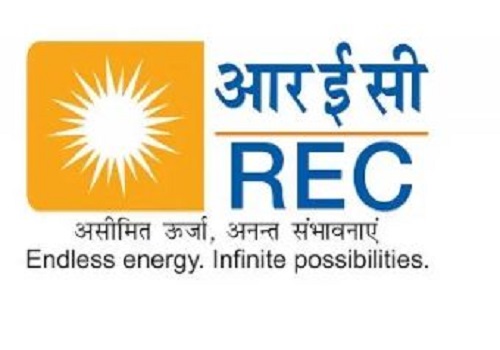
Company Update : Rural Electrification Corporation L...

Centre disbursed Rs 964 crore to electronics sector ...
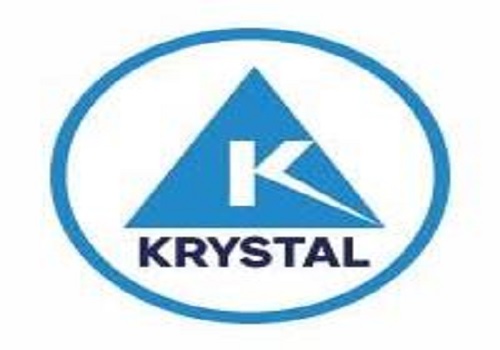
Krystal Integrated Services delivers strong financia...

Zupee Brings Salman Khan`s Signature Quirk to Its Ne...

Company Update : Bajaj Finance By Motilal Oswal Fina...

Centre notifies new Income-Tax Rules for non-residen...

Gold Advances to $2,750 Amid Trade Uncertainty and R...
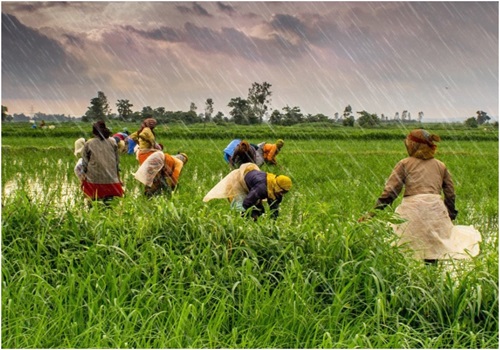
Temperature Rise in North Won't Affect Rabi Crops by...

Company Update : HDFC Bank By Motilal Oswal Financia...

Pre budget Quote on IT Industry by Pradyumn Sharma, ...
Tag News

Gold Advances to $2,750 Amid Trade Uncertainty and Rate Bets by Amit Gupta, Kedia Advisory

Temperature Rise in North Won't Affect Rabi Crops by Amit Gupta, Kedia Advisory

Pre-Market Comment by Hardik Matalia, Derivative Analyst, Choice Broking

Morning Market Quote : Nifty is down around 12% from the 2024 September highs Says Dr. V K Vijayakumar, Chief Investment Strategist, Geojit Financial Services



